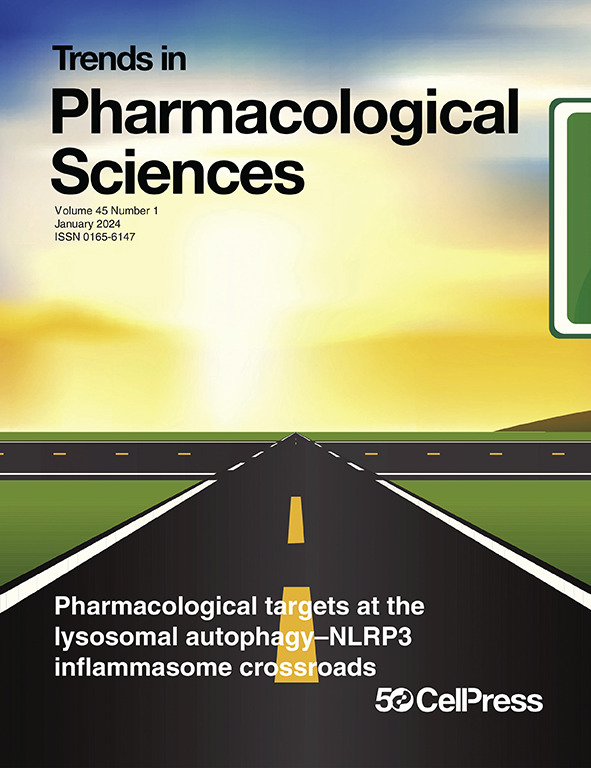靶向质膜胆固醇作为一种新的抗癌疗法。
IF 19.9
1区 医学
Q1 PHARMACOLOGY & PHARMACY
Trends in pharmacological sciences
Pub Date : 2025-08-01
Epub Date: 2025-06-19
DOI:10.1016/j.tips.2025.06.001
引用次数: 0
摘要
在结直肠癌(CRC)的背景下,治疗致癌Wnt信号的有效治疗策略仍然难以捉摸。Cho及其同事的一项新研究描述了典型腺瘤性息肉病(APC)功能丧失、膜胆固醇和特异性抑制胆固醇- dvl -β-catenin信号轴的创新药物靶点之间的一种新的机制联系。本文章由计算机程序翻译,如有差异,请以英文原文为准。
Targeting plasma membrane cholesterol as a novel anticancer therapy.
An effective therapeutic strategy to treat oncogenic Wnt signaling in the context of colorectal cancer (CRC) remains elusive. A new study from Cho and colleagues describes a novel mechanistic link between the loss of canonical adenomatous polyposis coli (APC) function, membrane cholesterol, and an innovative drug target to specifically suppress the cholesterol-Dvl-β-catenin signaling axis.
求助全文
通过发布文献求助,成功后即可免费获取论文全文。
去求助
来源期刊
CiteScore
23.90
自引率
0.70%
发文量
132
审稿时长
6-12 weeks
期刊介绍:
Trends in Pharmacological Sciences (TIPS) is a monthly peer-reviewed reviews journal that focuses on a wide range of topics in pharmacology, pharmacy, pharmaceutics, and toxicology. Launched in 1979, TIPS publishes concise articles discussing the latest advancements in pharmacology and therapeutics research.
The journal encourages submissions that align with its core themes while also being open to articles on the biopharma regulatory landscape, science policy and regulation, and bioethics.
Each issue of TIPS provides a platform for experts to share their insights and perspectives on the most exciting developments in the field. Through rigorous peer review, the journal ensures the quality and reliability of published articles.
Authors are invited to contribute articles that contribute to the understanding of pharmacology and its applications in various domains. Whether it's exploring innovative drug therapies or discussing the ethical considerations of pharmaceutical research, TIPS provides a valuable resource for researchers, practitioners, and policymakers in the pharmacological sciences.

 求助内容:
求助内容: 应助结果提醒方式:
应助结果提醒方式:


